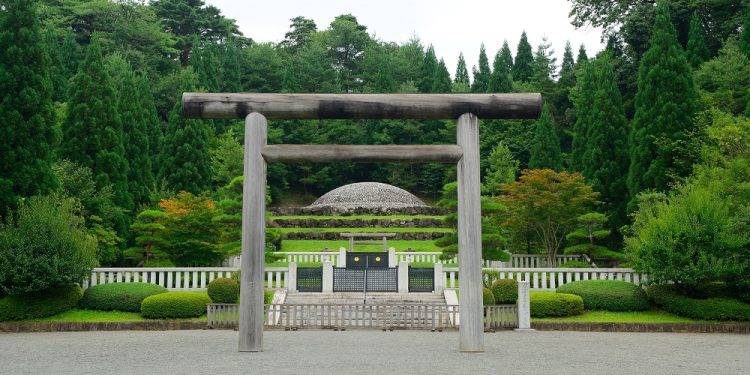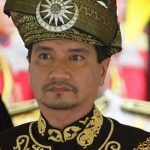
Showa Day
Showa Day is an annual holiday in Japan that’s observed on the 29th of April. This holiday honors the birthday of Emperor Shōwa—the emperor of Japan from 1926 to 1989. Showa means “bright peace” or “shining peace” and is used to describe the entire era in which Emperor Hirohito ruled.
This holiday is one that has not been without its share of controversy in Japan, as Emperor Hirohito’s 63-year reign oversaw many of the country’s struggles. Showa Day is also known as Shōwa no Hi and is just one of the holidays that can be found in Japan’s Golden Week.
The History of Showa Day
Showa Day was originally celebrated as The Emperor’s Birthday while Emperor Hirohito was the emperor of Japan. After his death on January 7, 1989, his posthumous name became Showa—which is the name of the era coinciding with his reign. Showa Day was briefly changed to Greenery Day, but that changed in 2005.
Greenery Day was moved to May 4th, and Showa Day was reinstated. It now makes up a part of Golden Week. During Golden Week, April 29th is Showa Day, May 3rd is Constitution Day, May 4th is Greenery Day, and May 5th is Children’s Day. Because there are so many different holidays during Golden Week, it’s a prime opportunity for many Japanese to go ahead and take their vacations.
A Brief Biography of Emperor Hirohito
Emperor Hirohito was born on April 29, 1901, in Tokyo’s Aoyama Palace during the reign of Emperor Meiji—his grandfather. He was the first son of Crown Prince Yoshihito and Crown Princess Sadako. When Emperor Meiji died on July 30, 1912, Yoshihito assumed the throne.
This made Hirohito the heir apparent, and he was formally commissioned as an ensign in the Japanese navy and a lieutenant in the army. He was promoted through the ranks until he was a captain in the army and a lieutenant in the navy in 1916.
On January 26, 1924, Prince Hirohito married Princess Nagako Kuni. They would end up having five daughters and two sons. On December 25, 1926, Hirohito assumed the throne when his father Yoshihito died. The Era of Taisho came to an end, and the Showa Era was proclaimed.
Within days, Yoshihito was renamed Emperor Taisho. According to Japanese custom, the new emperor was never referred to by his given name. Instead, he was referred to as His Majesty The Emperor or simply His Majesty.
The Emperor’s Ascension to the Chrysanthemum Throne was confirmed during the Sokui ceremonies in November of 1928. The beginning of his reign was marked with tension and an ever-increasing number of problems. From the early 1920s through the 1940s, there were over 60 acts of political violence and an ever-looming financial crisis.
In 1932, Prime Minister Inukai Tsuyoshi was assassinated, marking the end of civilian control of the Japanese military. There was also an attempted military coup in 1936. This resulted in the murders of several army and government officials and a loss of political support by the militarist faction in Diet elections.
Hirohito would be a reluctant supporter of the Manchurian occupation, which would lead to the Sino-Japanese War. Japan’s military would then become increasingly aggressive and enacted policies that would support that stance. As a result, this led Japan to enter into an alliance with the Axis Powers and eventually to the attack on Pearl Harbor.
In September of 1945, after Hiroshima and Nagasaki had atomic bombs dropped on them, Hirohito announced the country’s unconditional surrender to the Allied Forces. Japan lost over 2.3 million soldiers and almost a million civilians to World War II. Hirohito made a bargain with MacArthur that included implementing a new Japanese constitution and a renunciation of imperial divine authority. It’s in this way that Hirohito would become a democratic figurehead in Japan.
For the rest of his reign, Hirohito acted as the head of state and played an extremely important role in rebuilding the image of Japan to the rest of the world. He also focused on marine biology and even wrote a few books on the subject. On January 7, 1989, Emperor Hirohito died at Aoyama Palace in Tokyo of cancer. He was succeeded by his son Akihito.
Observing Showa Day
The purpose of this holiday is for citizens to reflect on the past history of Japan and the accomplishments of Hirohito. However, since this holiday falls during the course of Golden Week—the week comprised of Showa Day, Constitution Day, Greenery Day, and Children’s Day—many Japanese citizens use the week to take their vacation.
This makes the entire week very busy and is not the best time for visitors to Japan, as the public transportation system is under an increasing amount of strain during this time.








